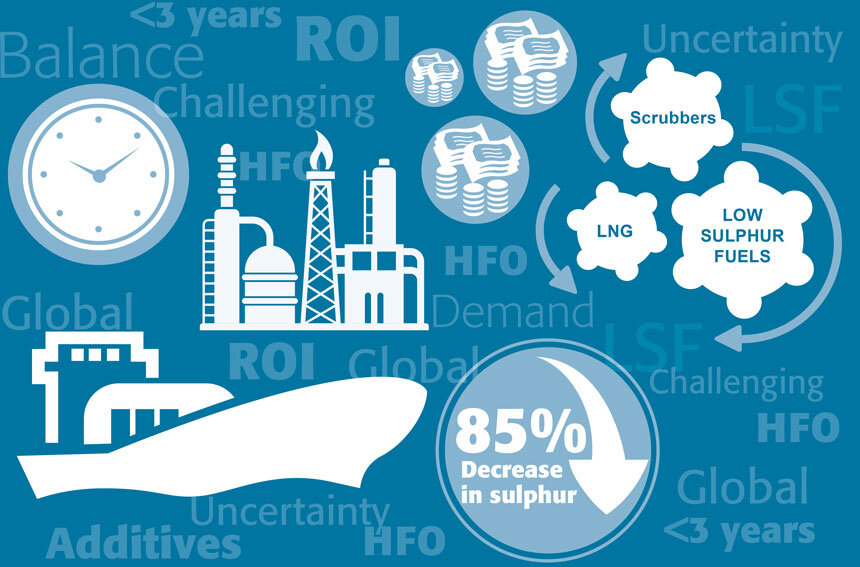Mediterranean Shipping Company plans to introduce a new Global Fuel Surcharge as of January 1, 2019. The company expects its operating costs to increase significantly in preparation for the 2020 low-sulphur fuel regime.
MSC said that the cost of the various changes to the fleet and its fuel supply is in excess of USD 2 billion per year, the same as with Maersk Line.
“The new MSC Global Fuel Surcharge will replace existing bunker surcharge mechanisms and will reflect a combination of fuel prices at bunkering ports around the world and specific line costs such as transit times, fuel efficiency and other trade-related factors.”
Separately, CMA CGM informed that it decided to favor the use of 0.5% fuel oil for its fleet, and to invest significantly by using LNG to power some of its future container ships, and by ordering several scrubbers for its ships.
The company said that all these measures represent a major additional cost estimated, based on current conditions, at an average of 160 USD / TEU. The additional cost will be taken into account through the application or adjustment of fuel surcharges on a trade-by-trade basis, CMA CGM explained.
“The implementation of this new regulation, which represents a major environmental advance for our sector, will affect all players in the shipping industry. In line with its commitments, the group will comply with the regulation issued by the IMO as from 1 January 2020. In this context, we will inevitably have to review our sales policy regarding fuel surcharges,” Mathieu Friedberg, Senior Vice President Commercial Agencies Network, said.
The new International Maritime Organization (IMO) Low Sulphur Regulation will be effective from 1 January 2020 and will require all shipping companies to reduce their sulphur emissions by 85%.
Sulphur content in the fuel used for international shipping will have to be limited globally to 0.5%, compared with the current standard of 3.5%, in order to minimize the emissions.
繼馬士基航運公司的腳步之後,瑞士和法國集裝箱航運巨頭MSC和CMA CGM公佈了他們打算在2020年硫上限之前引入新的燃油調整附加費。
地中海航運公司計劃於2019年1月1日推出新的全球燃油附加費。該公司預計其運營成本將大幅增加,以準備2020年的低硫燃料體系。
MSC表示,船隊及其燃料供應的各種變化成本每年超過20億美元,與馬士基航運公司相同。
“新的MSC全球燃油附加費將取代現有的燃油附加費機制,並將反映世界各地加油港口的燃油價格和特定的運輸成本,如運輸時間,燃油效率和其他與貿易有關的因素。”
另外,CMA CGM告知其決定支持使用0.5%燃料油用於其車隊,並通過使用LNG為其未來的一些集裝箱船提供動力以及為其船舶訂購幾個洗滌器來進行大量投資。
該公司表示,根據目前的情況,所有這些措施代表了估計的主要額外成本,平均為160美元/ TEU。CMA CGM解釋說,通過逐筆交易應用或調整燃油附加費,將考慮額外成本。
“這項新規定的實施,代表了我們行業的重大環境進步,將影響航運業的所有參與者。根據其承諾,該集團將遵守國際海事組織自2020年1月1日起頒布的規定。在此背景下,我們將不可避免地審查有關燃油附加費的銷售政策,“ 商業機構網絡高級副總裁Mathieu Friedberg, 說過。
新的國際海事組織(IMO)低硫法規將於2020年1月1日起生效,並要求所有船運公司將其硫排放量減少85%。
用於國際航運的燃料中的硫含量必須在全球範圍內限制為0.5%,而目前的標準為3.5%,以便最大限度地減少排放。

Information source: World Maritime News Staff; Image Courtesy: Konutherm